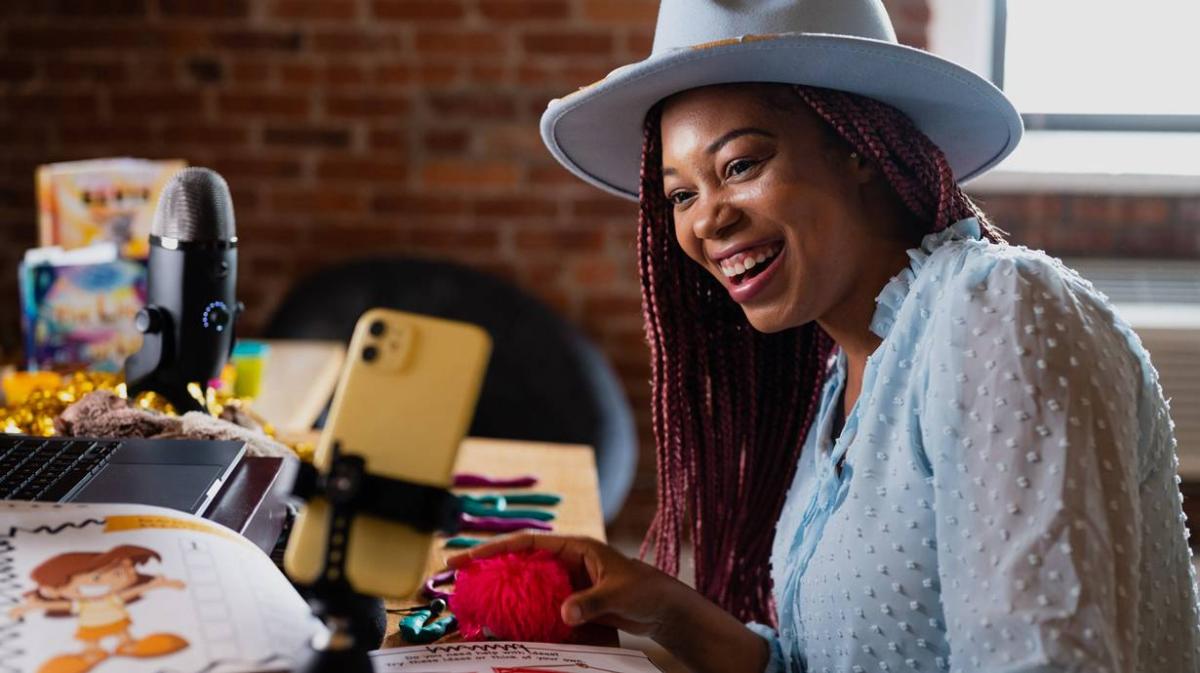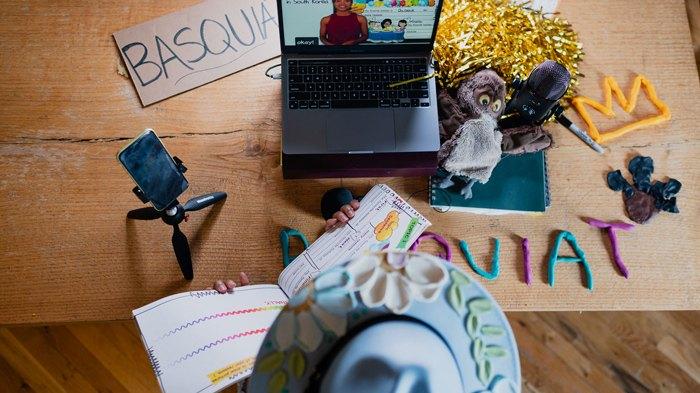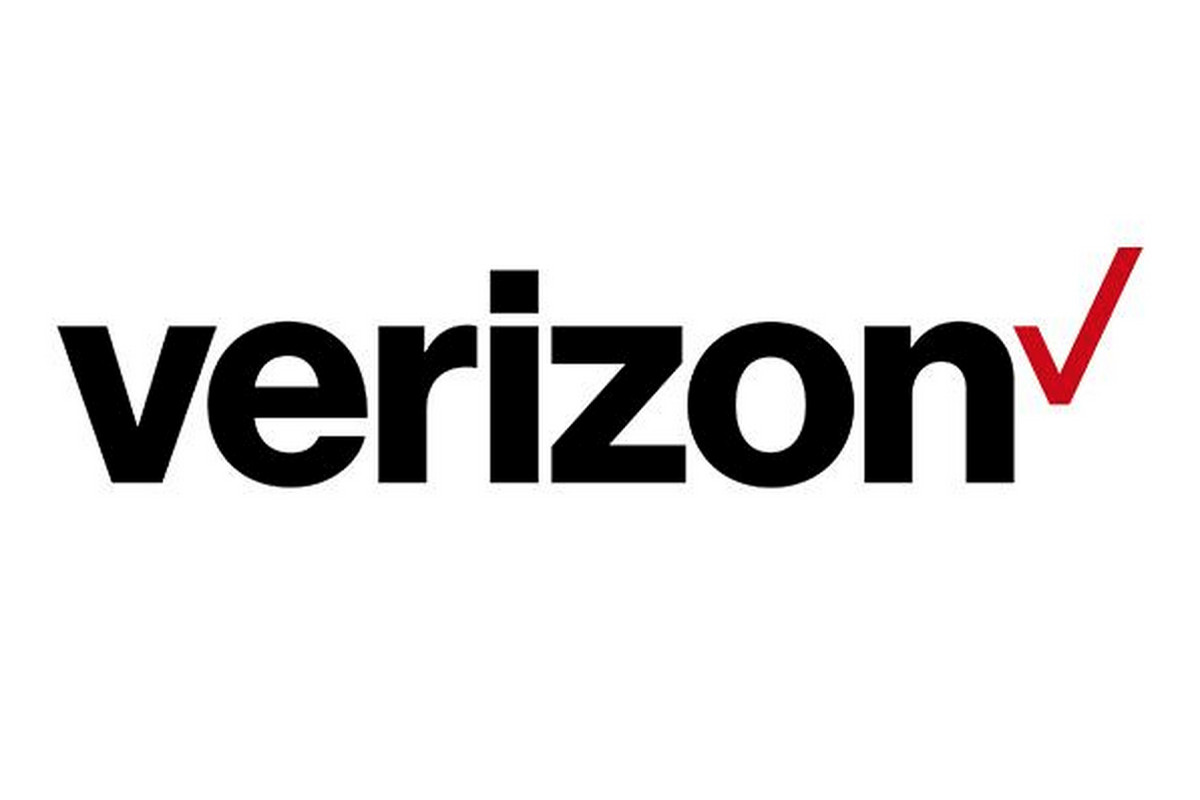We Need to Stop Talking About the Years Our Kids Lost in School.
By: Gahmya Drummond-Bey
One pandemic-era educator shares what she sees from her side of the screen: When we talk about the learning losses from the pandemic, we need to consider the gains, too.
Yesterday, my 5-year-old students received a self-love challenge in the form of QR codes that were strategically placed throughout their activity books. The QR codes lead to videos that they can respond to with videos of their own. It was all their idea. Everything. The QR codes, the animated meditations and the ability to respond to me via video. Five-year-old children came up with that. There is a tremendous difference between the children I am teaching now and the ones I taught before the pandemic, and I must say that I’m incredibly proud of them.
Before the pandemic, I spent years as a digital nomad working for the Peace Corps, traveling the world and immersing myself in some of the best education systems to see what we could learn from them. That led me to South Korea, where I taught through two pandemics: the H1N1 virus in 2009 and MERS in 2015. In my experience, many of our children were taught within standard educational practices that were systems passed along year after year. Today’s students were being prepared for the same futures that our own educational systems prepared us for. They had outdated systems that struggled to keep up with current-day educational demands.
However, when the COVID-19 pandemic began, educational leaders worldwide were forced to shift and create learning that reflected the moment, thus providing children with an opportunity to learn in a way that compelled them to not only fully experience their current world, but to also prepare for the world they would actually live in, rather than the same futures their elders prepared for.
I have witnessed conversations among other educators, education enthusiasts and parents regarding learning loss and how much our children have missed during our collective crisis. However, when I am in the classroom experiencing my students first-hand, I can’t help but marvel at how much they’ve gained.
In fact, the following are three ways our children have soared that stand out the most.
1. They’ve embraced digital citizenship. Children today are more connected than we ever were, and because of this instant digital connection they learn to interact and be responsible with technology in ways that we never had to. Five-year-old children, like my students, are cognizant of ways to utilize Artificial Intelligence, and for them it’s as simple as saying, “let’s make QR codes.”
They are also more comfortable on camera and have gained digital learning skills that some adults have gone their entire professional lives without ever having to learn before the pandemic, such as how to conduct a video call. In fact, several of my students use their tablets to have co-playing sessions with their friends. A “co-play” session is similar to a “coworking” session that entrepreneurs often have, in which a group of participants may join a video call for 90 minutes simply to silently work together for accountability.
You’d be surprised by how much your young one has learned first-hand or picked up by observing family members working from home.
Ways to celebrate the win:
Incorporate the “before and after technique.” We are taught at a young age to simply focus on how much we don’t know or what we can’t do, so the “before and after technique” helps us to keep all of our gains in perspective. This approach to a conversation is a great way for us all to really take note of how much we’ve grown, adapted and persevered. I recommend acknowledging “before and after” conversations weekly.
For example: “Wow, Stacey! Before the pandemic, you mainly used your tablet for games and to watch YouTube. But, after learning from home, you now use your tablet to have play dates with your friends, chat with your teacher and even learn how to play chess! I’m so proud of you!”
2. They’ve embraced global citizenship. The pandemic is the first time during many of our lifetimes that every country in the world has shared a collective experience. This, along with being on lockdown during several other social crises, has created a sense of compassion and empathy.
In fact, experiencing the world as both digital and global citizens has provided our young people with a deeper connection to individuals beyond their communities. Research suggests that shared suffering creates a form of “social glue” that is conducive to people feeling more connected. They are not only aware, but they care. Our children have more compassion, empathy and geographic awareness. They’ve identified that places far away have people who have and are also suffering, and this connection is greater than any storytime or history book could have ever presented.
Ways to celebrate the win:
Ask a child “How were you a great ambassador today?” This question refers to ways in which they have represented themselves and their communities both in person and online. It reinforces digital responsibility and reminds them that both intentions and impact matter.
3. They’ve embraced their emotions. In order to help our children cope and to empower them as much as possible, parents and teachers worldwide have had more conversations with young people regarding their emotions than ever before. We’ve discussed the differences between a fixed mindset and a growth mindset, how to be upstanders, and ways to relieve stress and anxiety. Our children are more emotionally intelligent than we were, and the benefits of not only being able to handle one’s own emotions, but to create space for others transcends far beyond what any academic achievement ever could.
Ways to celebrate the win:
Add emotional praise into the family conversation. Providing conversation around mental health and one’s emotions helps to solidify their importance and allow young people to feel truly seen.
Consider compliments such as:
“I love how much you’re leaning into your creativity these days.”
“I noticed you taking a deep breath to avoid getting frustrated today. Well done.”
“I saw you listening to music to relax a bit before doing your homework, and that’s great for your mental health.”
Our children experienced a form of experiential learning that enriched their lives in ways that we never could have prepared for. Sure, many schools were not able to fully cover pre-arranged lesson plans. However, the actual learning that our children received were lessons that they needed to navigate their current world, which further prepares them for the world they will actually live in: A world that needs its future leaders to be digital global citizens who embrace their emotions and continue to push humanity forward.
I do not believe that our children are behind. The last few years may have been tough, but our kids were, and continue to be, much tougher.
Help kids celebrate the gains and prepare for the world they’re going to live in with Verizon Innovative Learning HQ, offering free resources, next-gen curriculum and more.



